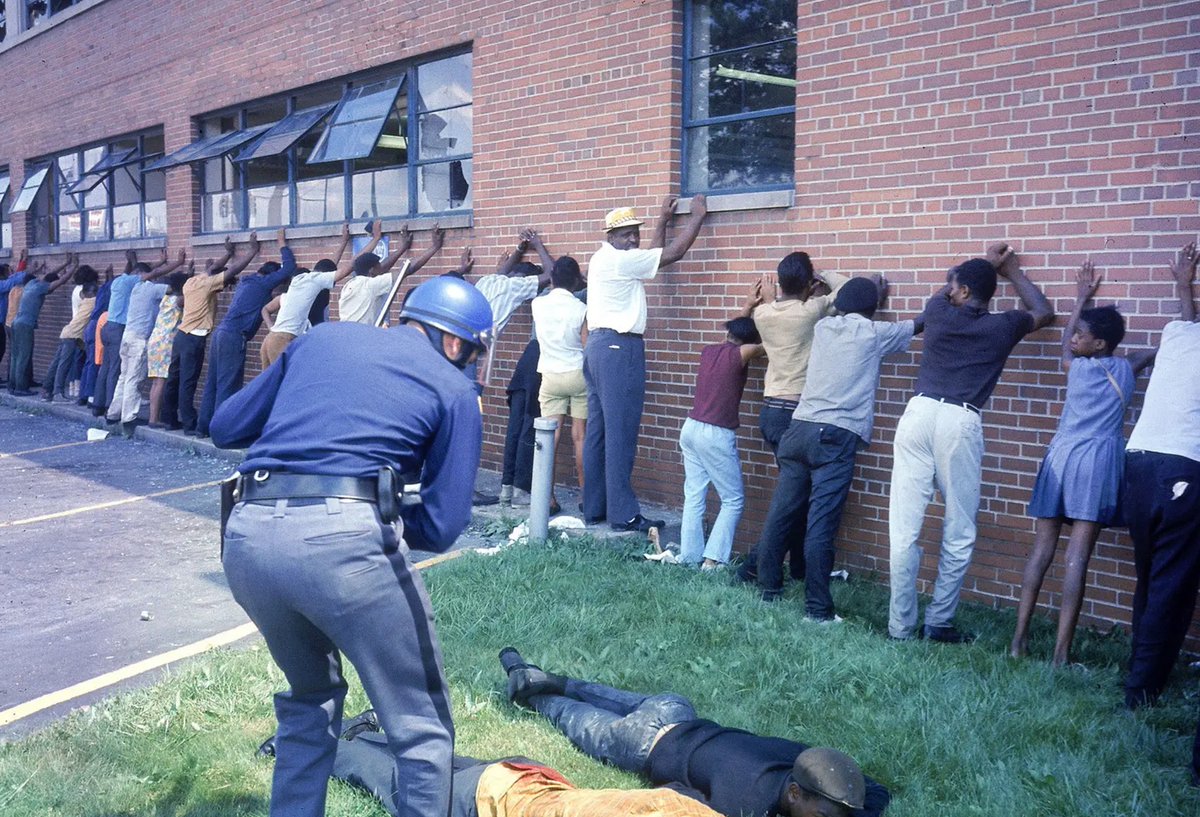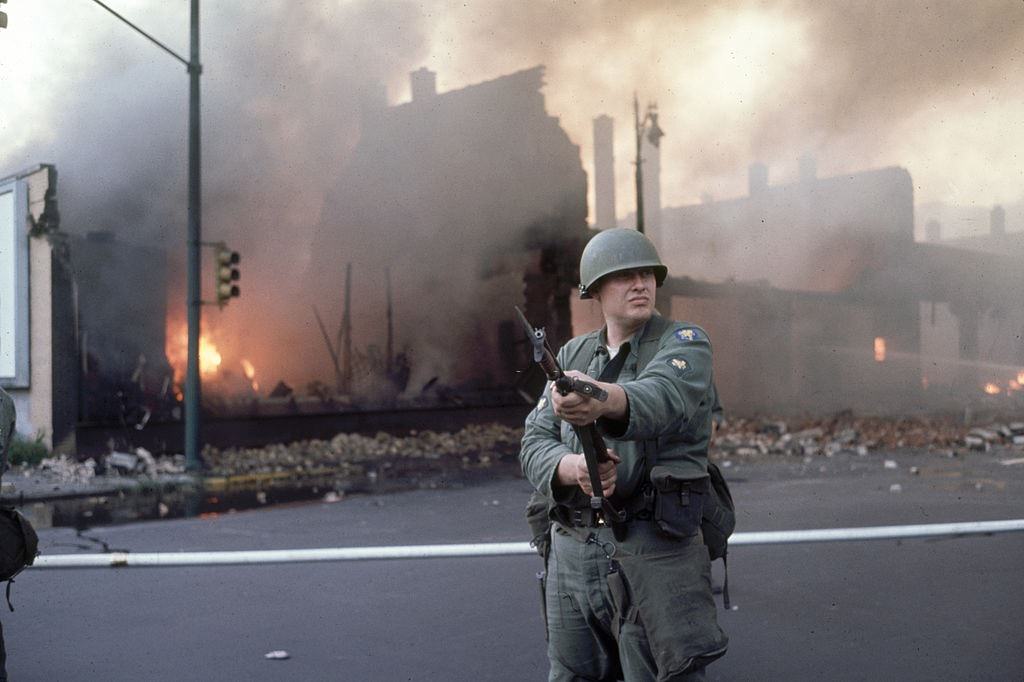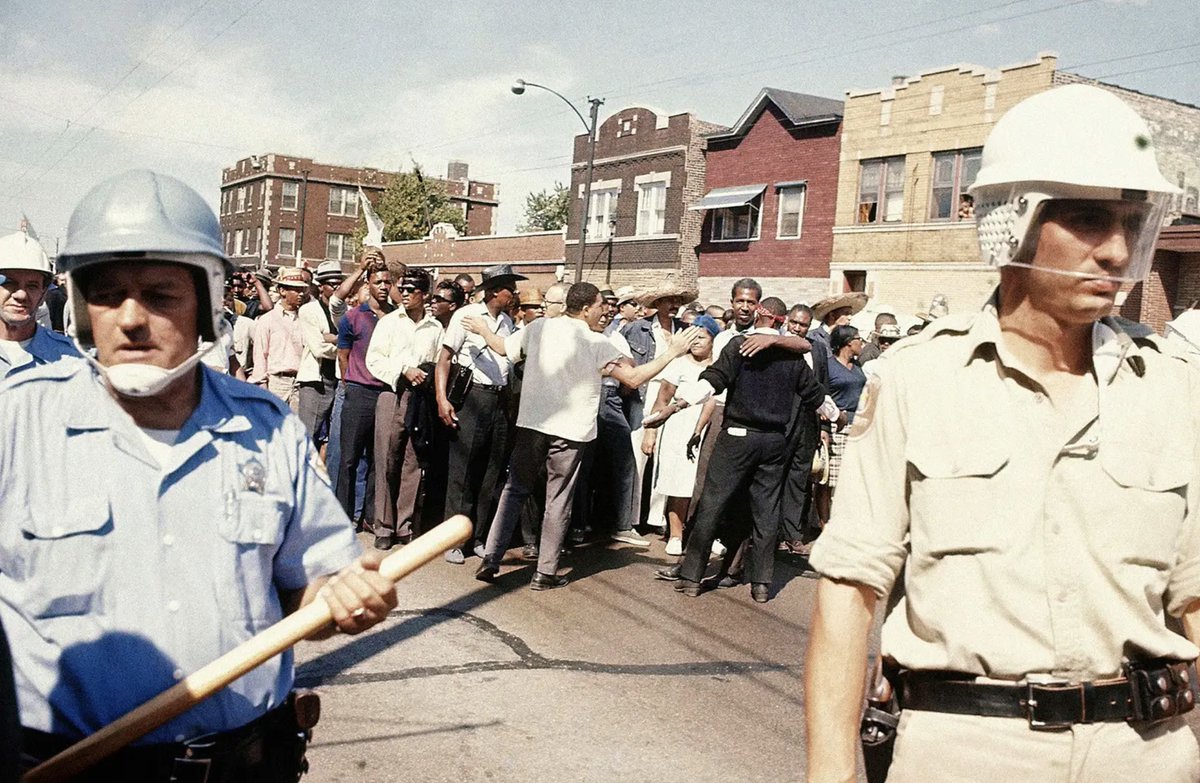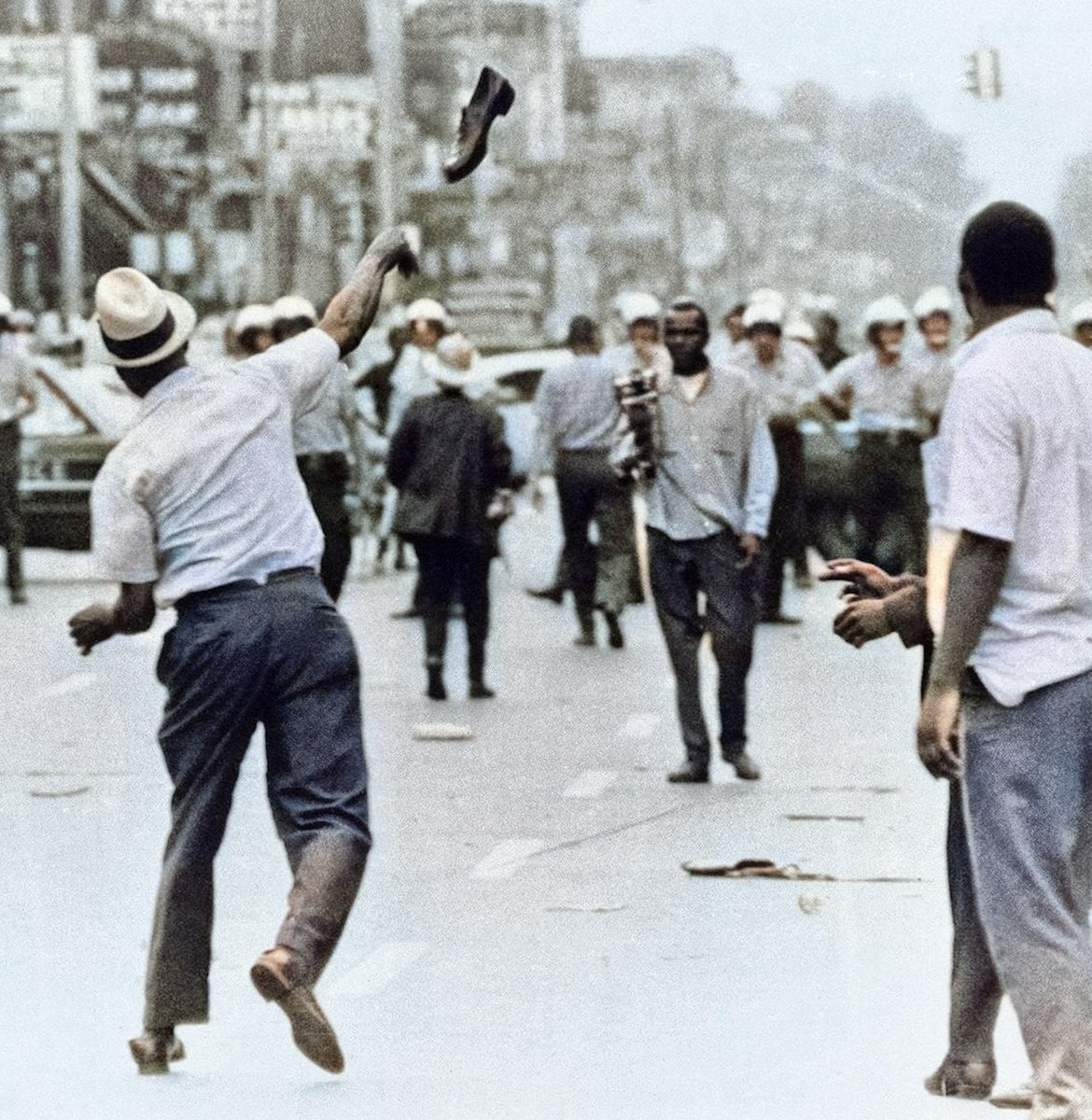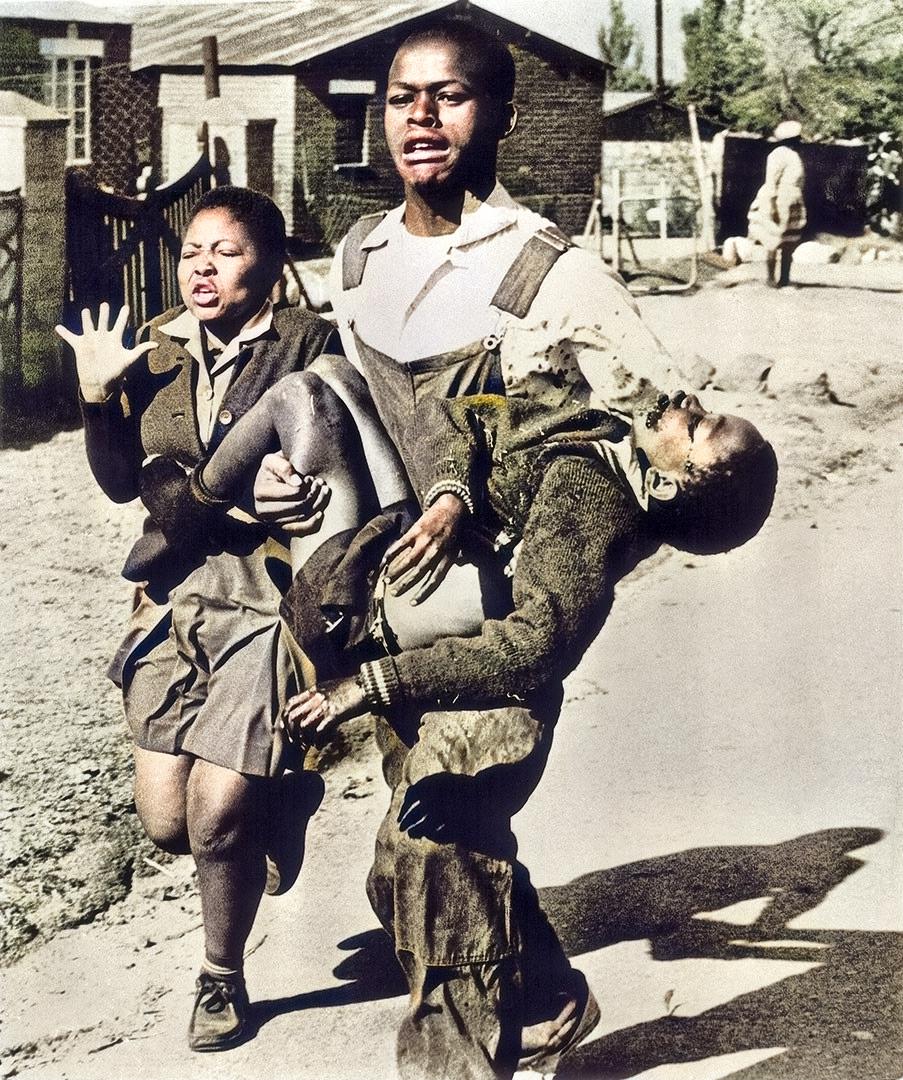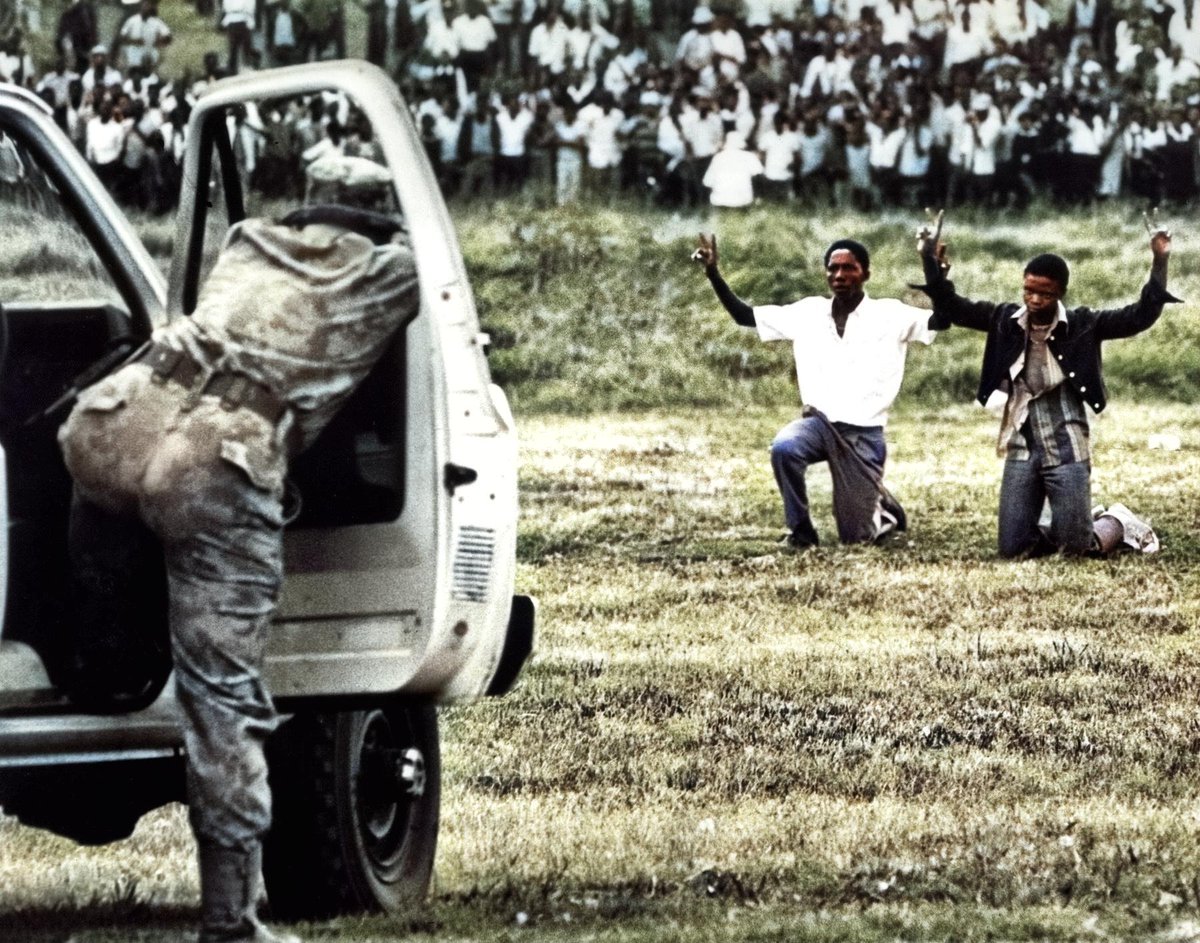
A year after the Cuban Revolution, Castro and his delegation came to NY to attend the UN General Assembly, but the management of the Manhattan hotel the delegation had booked now refused to house them after the U.S. government already pressured other hotels to reject the Cubans.
Upon learning of their situation, Malcolm X invited them to come uptown to Harlem, to stay at the Black-owned Hotel Theresa, where Malcolm X said he would be greeted with open arms. 
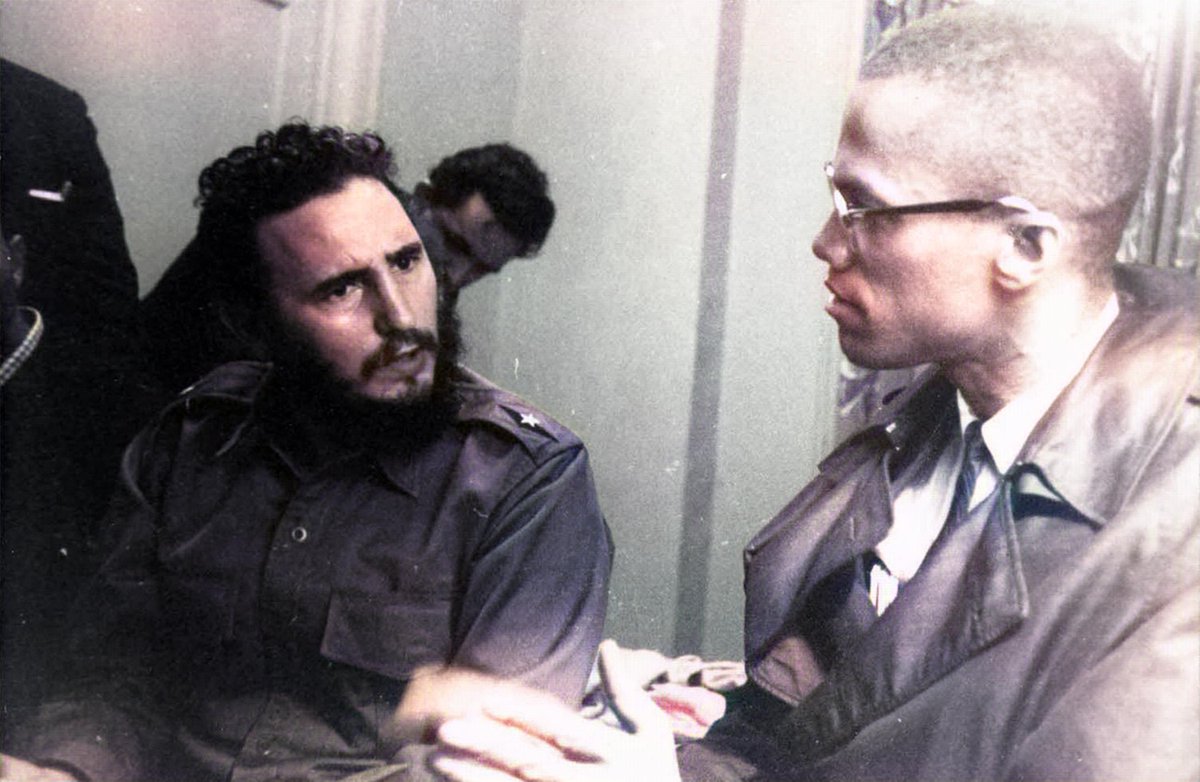
People from Harlem received the 34-year-old Cuban revolutionary leader by the thousands, with masses huddling round-the-clock in front of the hotel. 

Castro was to them that bearded revolutionary who had told white America to go to hell and his stay there was an important acknowledgment of the struggle African Americans shared with the rest of the Third World in resisting racism, colonialism and imperialism.
When the 35-year-old Malcolm X received Castro they talked about the inconceivable inhospitality the Cuban party had experienced at the Shelburne hotel, and the insulting demand made upon them...
... of paying a $10,000 deposit against damage to be expected from Cuban “barbarians” following a racist slander campaign in the press that included baseless charges of plucking live chickens at the hotel.
But above all, Fidel spoke of Harlem. “I always wanted to come to Harlem,” said Castro, “but I was not sure of what kind of welcome I would get. When I got the news that I would be welcome in Harlem, I was happy.” 

“The Black people of the United States were not as brainwashed by the government’s anti-Cuban propaganda as whites,” he continued.
Revolutionary Cuba, a majority Black nation, was wiping out racial discrimination.
Revolutionary Cuba, a majority Black nation, was wiping out racial discrimination.
Cubans, Africans and the Black people of the United States were all in the same boat. “I feel as if I were in Cuba now. I feel very warm here.”
Malcolm X responded that it was indeed true that, “We in Harlem are not addicted to all the propaganda the U.S. government puts out.” And then they embraced.
“As long as Uncle Sam is against you, you know you’re a good man,” Malcolm X told Castro.
“As long as Uncle Sam is against you, you know you’re a good man,” Malcolm X told Castro.

• • •
Missing some Tweet in this thread? You can try to
force a refresh







